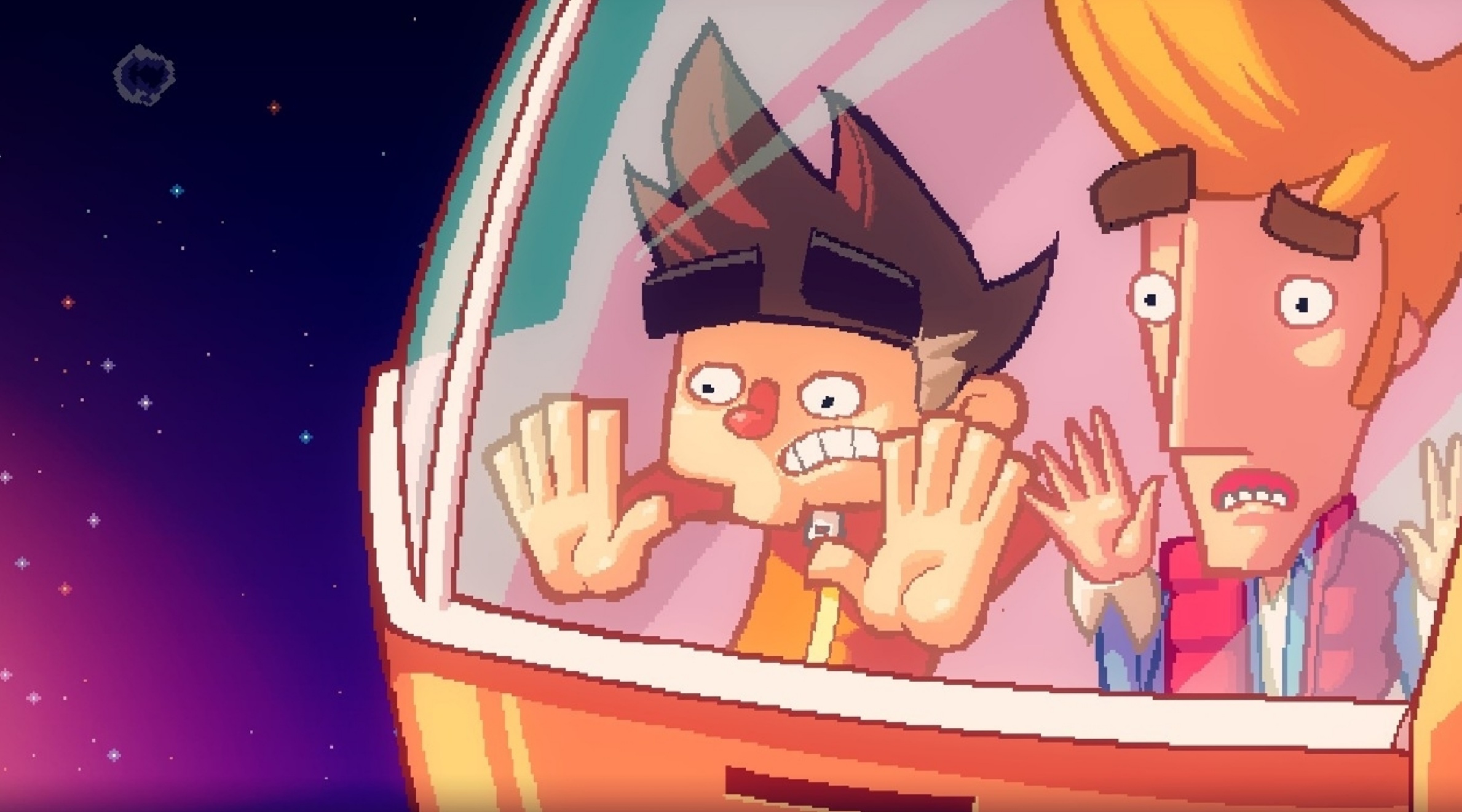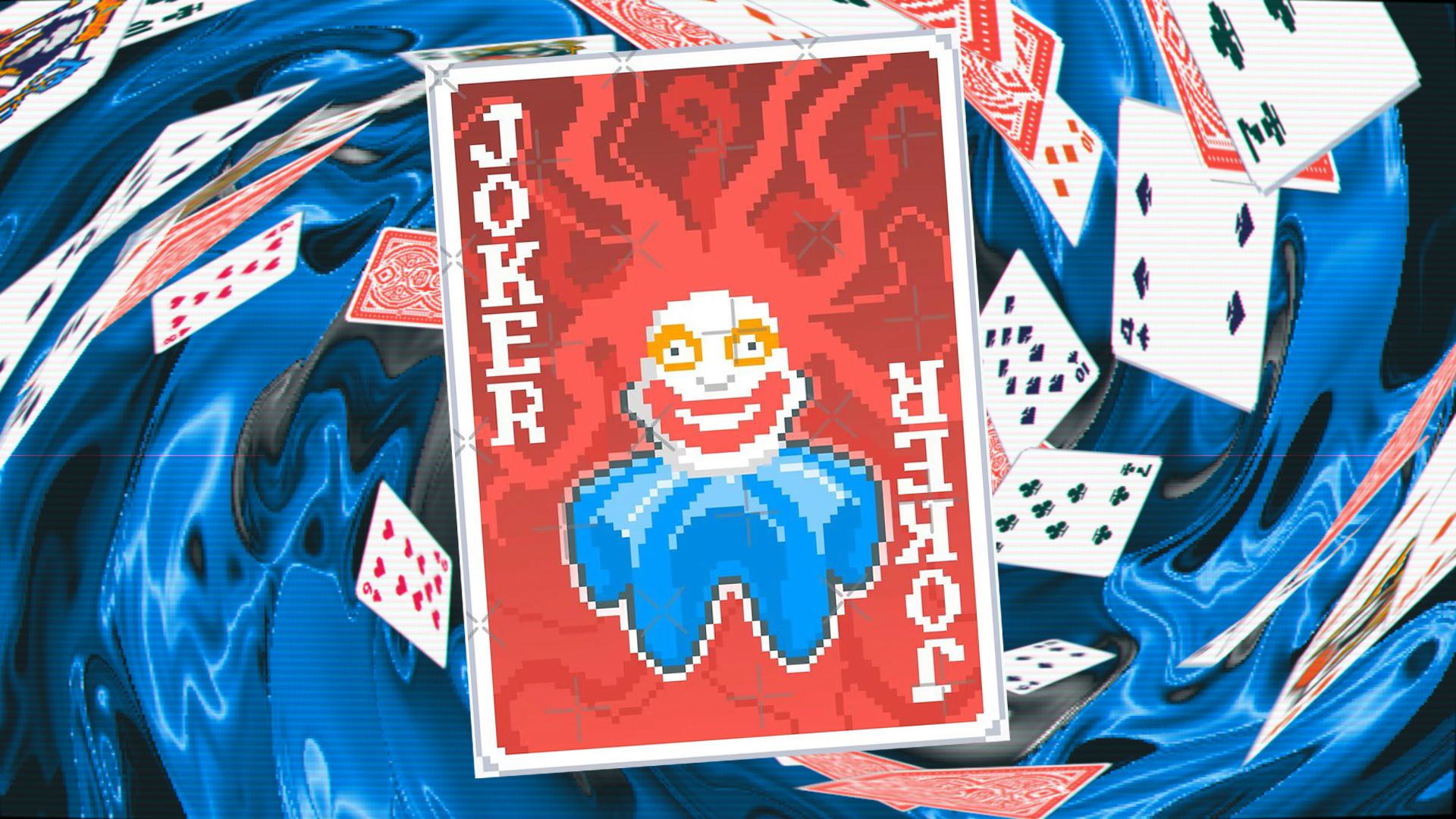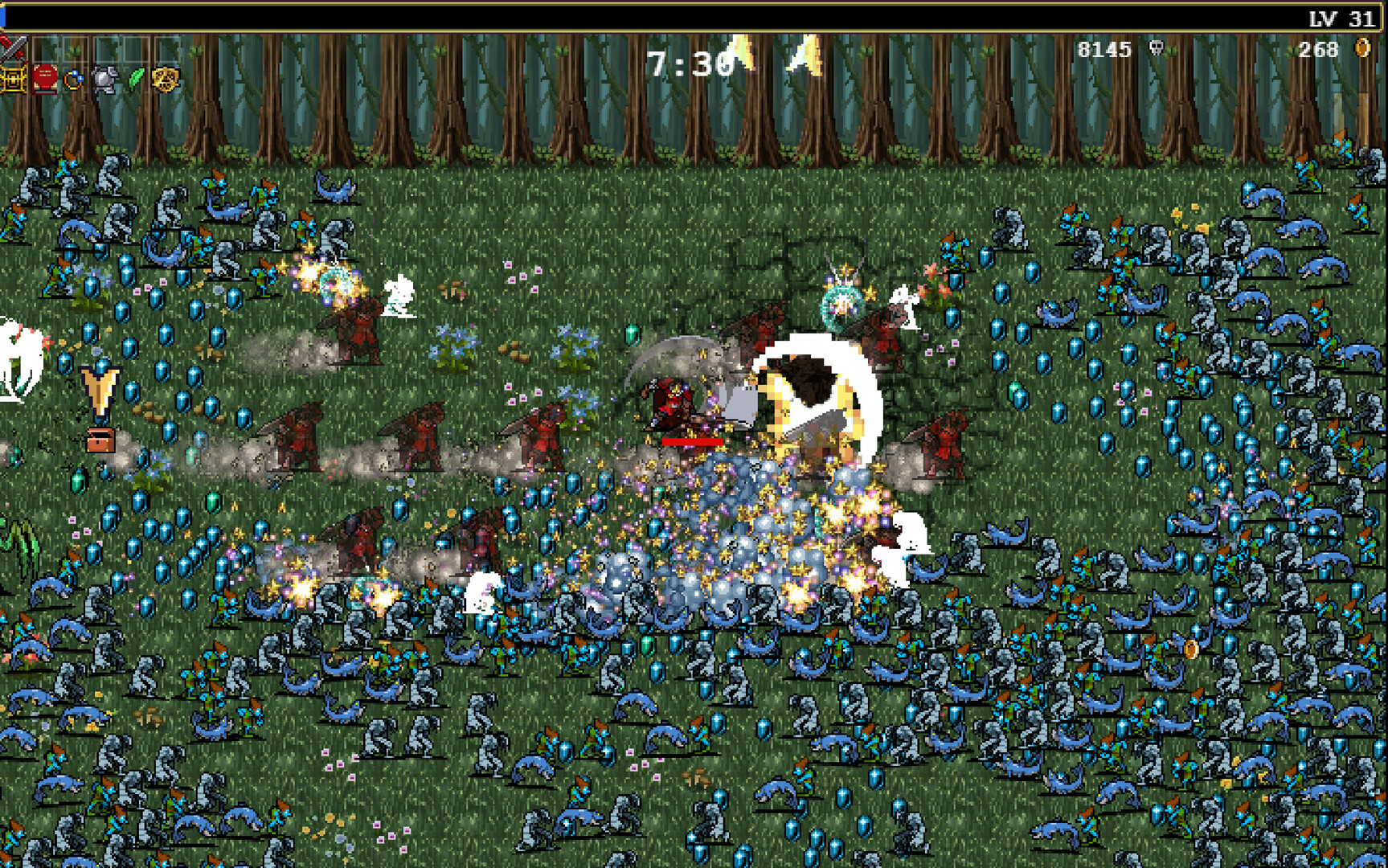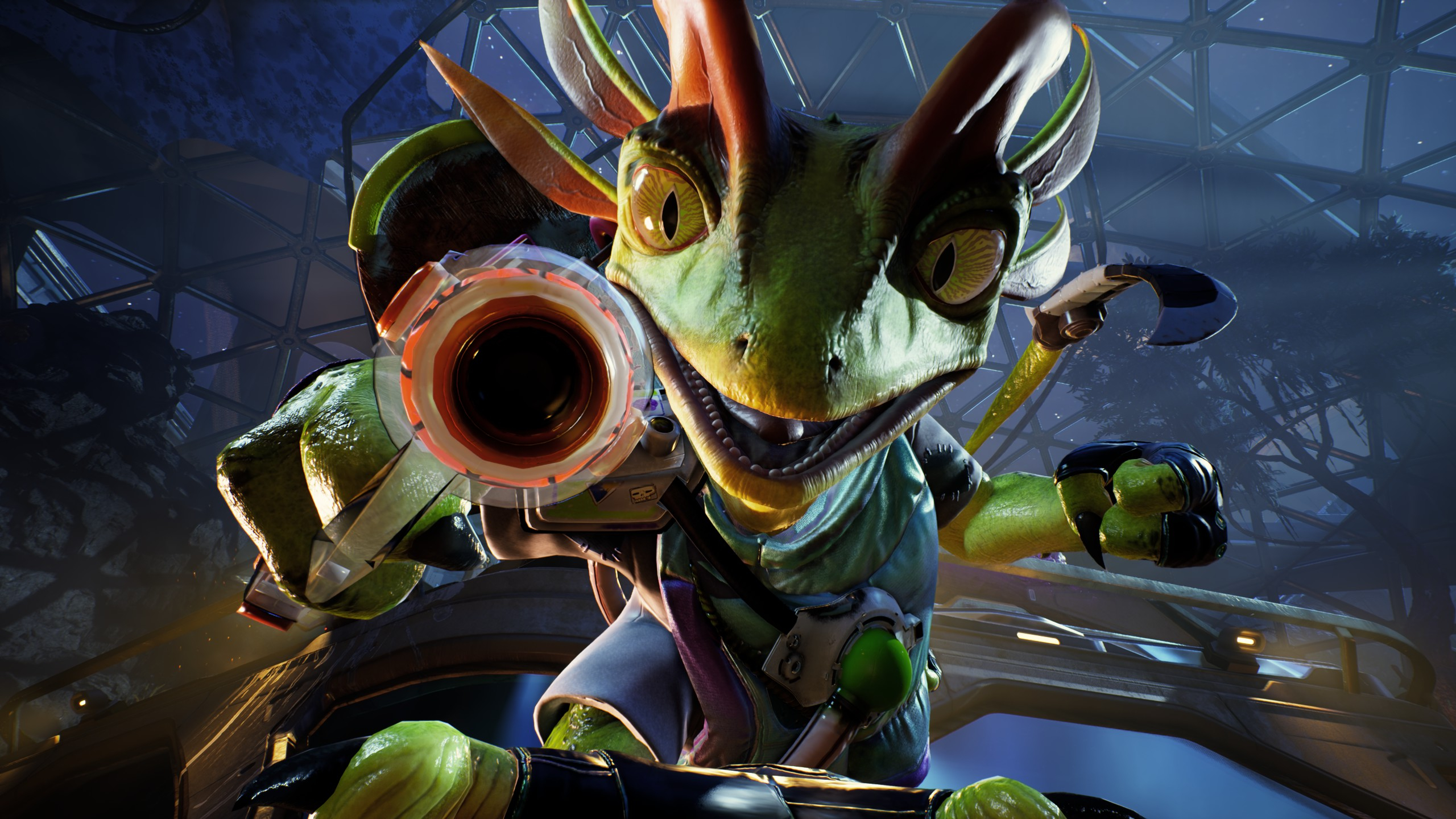Veteran indie dev says success on Steam these days is impossible to predict: 'Why did Balatro take off? You could write a million f***ing essays and none of them will be definitely right'
"Everything has changed. Everything is harder work."

Keep up to date with the most important stories and the best deals, as picked by the PC Gamer team.
You are now subscribed
Your newsletter sign-up was successful
Want to add more newsletters?

Every Friday
GamesRadar+
Your weekly update on everything you could ever want to know about the games you already love, games we know you're going to love in the near future, and tales from the communities that surround them.

Every Thursday
GTA 6 O'clock
Our special GTA 6 newsletter, with breaking news, insider info, and rumor analysis from the award-winning GTA 6 O'clock experts.

Every Friday
Knowledge
From the creators of Edge: A weekly videogame industry newsletter with analysis from expert writers, guidance from professionals, and insight into what's on the horizon.

Every Thursday
The Setup
Hardware nerds unite, sign up to our free tech newsletter for a weekly digest of the hottest new tech, the latest gadgets on the test bench, and much more.

Every Wednesday
Switch 2 Spotlight
Sign up to our new Switch 2 newsletter, where we bring you the latest talking points on Nintendo's new console each week, bring you up to date on the news, and recommend what games to play.

Every Saturday
The Watchlist
Subscribe for a weekly digest of the movie and TV news that matters, direct to your inbox. From first-look trailers, interviews, reviews and explainers, we've got you covered.

Once a month
SFX
Get sneak previews, exclusive competitions and details of special events each month!
Size Five Games' Dan Marshall has been making games for around 20 years, and was one of the early indie adopters of Steam when he released the excellent Time Gentlemen, Please! on the platform back in 2009. He's been around the block, then, and he's seen it change dramatically.
Trying to figure out the secret to blowing up on Steam as an indie is an impossible task. There are so many variables you could obsess over, but at the same time it almost seems random. Yes, the game actually needs to be good, but countless good games get completely overlooked on Steam every single day.
"Why did Balatro take off? You could write a million fucking essays about why that took off, and none of them will be definitely right," Marshall says. "Blind fucking luck. Is it because of the little jaunty pixel jester man? I first picked up on it when it got banned for gambling. Was that helpful to them? Probably, that's why I knew about it. Until then, I'd ignored it because it's not my sort of thing. I don't like card games, but I picked it up after that to see what it's all about."
One thing that has become clear, though, is that the old methods of making an indie hit are no longer working.
"I remember Notch mentioning one of my games back in the day, and making five grand that hour. It was astonishing," he recalls. "Now you can have people with 20 million followers on Twitter mentioning your game or doing a YouTube video about your game, providing all the links they need, discount if you like. It won't budge the needle. It'll barely do anything."
The relationship people have with the accounts they follow is a big part of the change, he reckons. "They would do anything for the person with the popular account. That wore off pretty quick, I think, to the point where now, people don't click through. People don't do anything with any information they're given. They see it, they scroll past it, and it's gone."
It was always tough to get attention, but "there's so many more people shouting now," he says. "Everything has changed. Everything is harder work." There was a period where developers could at least rely on Steam wishlists, but that's all in the past too.
Keep up to date with the most important stories and the best deals, as picked by the PC Gamer team.
"The wishlist thing was your basic measure of how good a game is going to do, five years ago," he says. "On the day of launch, you got an email saying this game you've wishlisted is available. It was basically a mailing list. And five years ago, that was the metric. Your Develop talk was why wishlists are your secret to success. Here we are, five years later, I don't think it makes a fucking difference anymore. Same problem as Twitter, right? You get an email in your inbox saying Size Five's latest game is out now. And you look at it and go, 'Well, fuck it, that's one of 20 games I've got wishlisted that comes out this week.' It's water off a duck's back. It just goes past you, and then that moment's gone."
From the other side, here in the land of games journalism, it also used to be a lot easier to predict what was going to blow up. And some of the games that would have been massive a decade ago are still enjoying that kind of fortune today. But when you've got a barrage of new releases every minute, it's increasingly hard to tell if this random, ugly game that lies about the existence of vampires is going to drift off into obscurity or become a global obsession.
"Vampire Survivors is really interesting to me, because everything about Vampire Survivors has the air of just, some bloke made a shitty little game," Marshall says. "Vampire Survivors, being polite, looked bad when it first launched, right? But obviously struck gold with a vibe that worked with people and they found it interesting and passed it on through word of mouth. And now every fucking third trailer I see for an indie game is functionally Vampire Survivors. It's an entire genre that people have run with, and the game itself has done incredibly well."
What's the secret sauce? Nobody seems to know. "You could drive yourself mad trying to recreate it—you never will," he says. "There's no point going, 'Oh, let's just do what Vampire Survivors did', and put up a bad-looking game in early access for a quid and see what happens. Because whatever that zeitgeist was, it's gone.
"The core of it was a good game that people enjoyed playing. If it wasn't, it would have died on its arse. But 'It's a good game that people enjoy playing' is not the solution to that. Because, as you know, there are plenty of good games that are fun to play that have had nothing near Vampire Survivors' success."
Maybe the solution is just to make a good game and then wing it. Hope for the best. Pray that Steam's impossible-to-understand discoverability works in your favour. But that sounds like a daunting way to run a business.
Marshall's pretty sanguine about the whole thing. "Size Five has always just plodded along without a colossal success, which is fine by me. I'm still here after 20 years, which I consider to be a success. The weird thing is, would I be happier if any of those games had done Vampire Survivors numbers? Probably not, because the spotlight and the money hose brings its whole own list of problems, right? You've suddenly got angry people demanding updates. You've got a product out that's got bugs in it. That's not how I like to operate at all."

Fraser is the UK online editor and has actually met The Internet in person. With over a decade of experience, he's been around the block a few times, serving as a freelancer, news editor and prolific reviewer. Strategy games have been a 30-year-long obsession, from tiny RTSs to sprawling political sims, and he never turns down the chance to rave about Total War or Crusader Kings. He's also been known to set up shop in the latest MMO and likes to wind down with an endlessly deep, systemic RPG. These days, when he's not editing, he can usually be found writing features that are 1,000 words too long or talking about his dog.
- Jeremy PeelContributor
You must confirm your public display name before commenting
Please logout and then login again, you will then be prompted to enter your display name.



